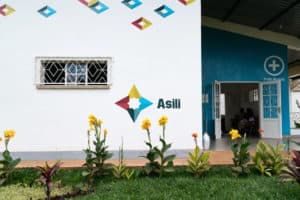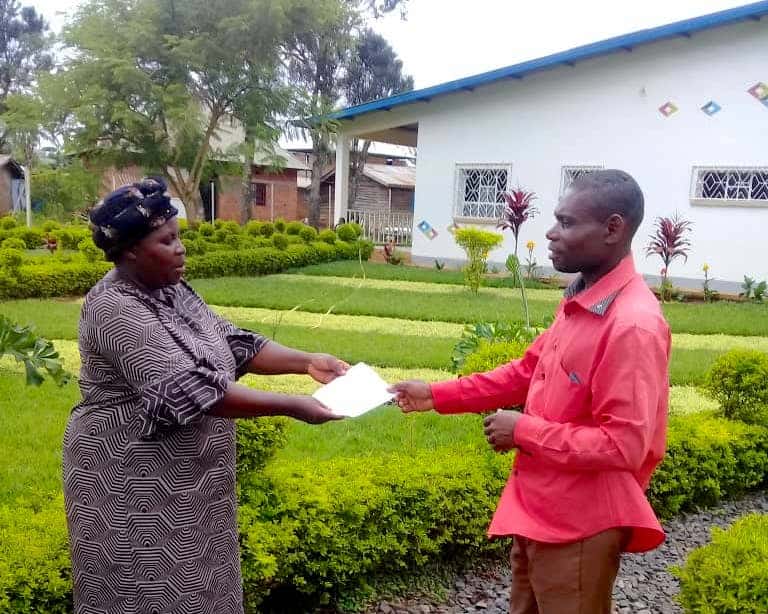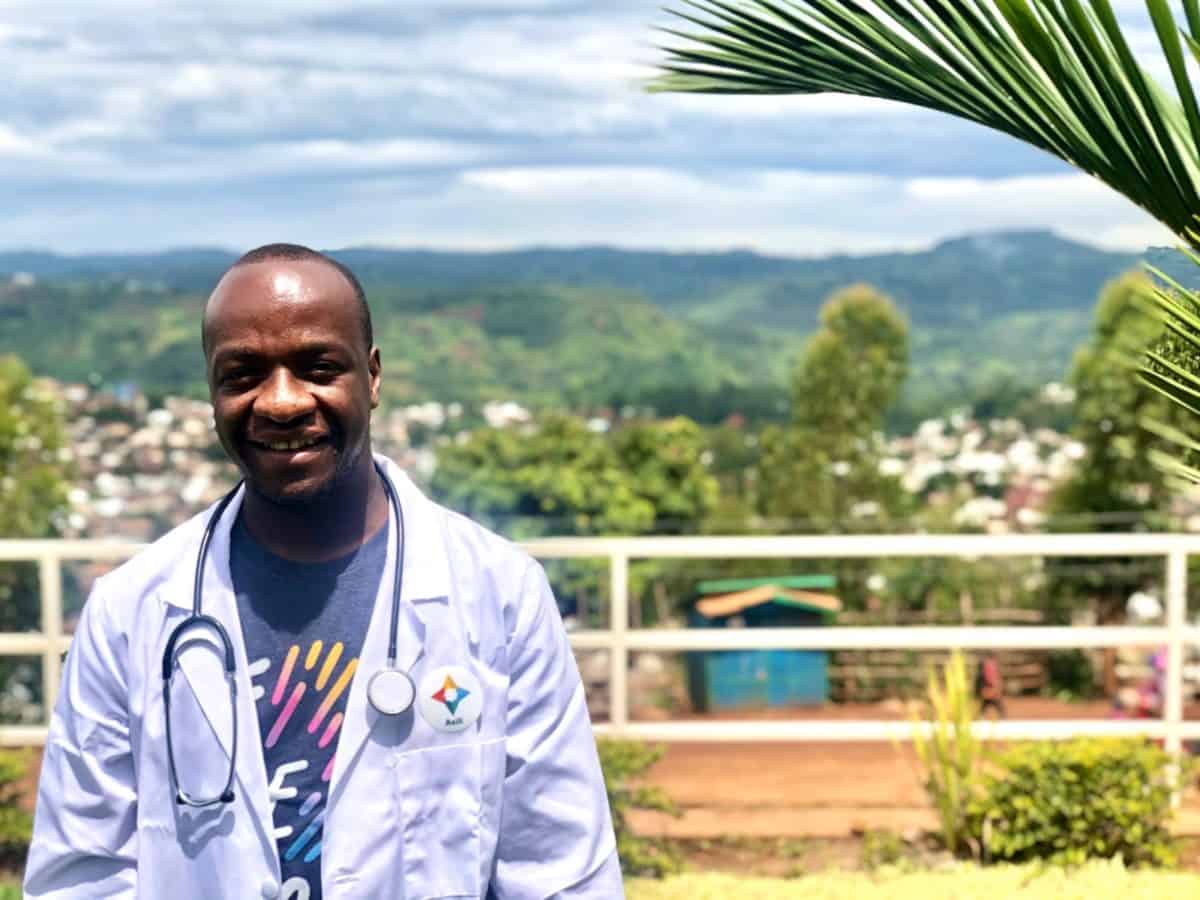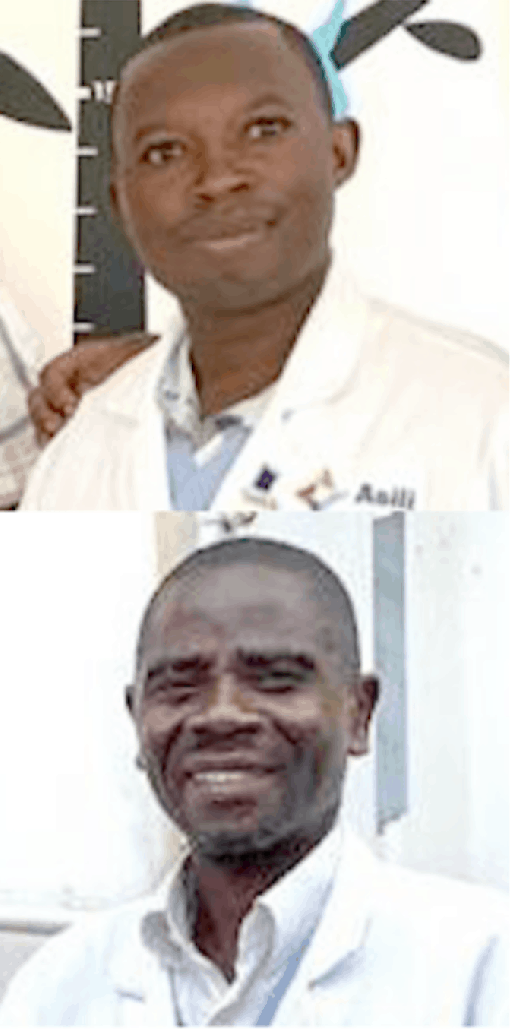

Spreading the word about COVID-19 prevention
In the Democratic Republic of Congo, people don’t have many ways to get news from public health experts — and often don’t believe what they hear from government sources. To stay safe during the COVID-19 epidemic, they need guidance they can trust.
With support from USAID, Asili has built a social enterprise platform selling clean water and primary health services at prices the community can afford. Asili health clinics and water points have earned the trust of the communities they serve by bringing radical quality and accountability to essential services. Asili’s health care team quickly created posters and brochures about COVID-19 in French and Swahili to help spread the word.
“We aim to help people observe hygiene rules so they don’t become victims or vectors of the coronavirus,” says Mama Salomé Kaliza, Asili’s community engagement manager. “So we’re using the poster everywhere. We have flyers, too, that we are distributing throughout our communities to get the message out.” In hundreds of one-on-one conversations, Congolese people are learning how to stay safe from neighbors they trust.

This physician is a leader in his community’s pandemic response
Johny Muhindo, M.D., is the medical coordinator of Asili. He oversees primary health care services at 4 clinics in South Kivu. Months ago, as the coronavirus was still confined to China, Dr. Muhindo knew it was serious — so he worked with his team to prepare.
Today, South Kivu is an emerging hotspot for COVID-19 disease in eastern DR Congo, and Dr. Muhindo’s team is on the front lines of the response —counseling patients and worried families, patiently countering misinformation in the community, and helping his staff treat potential COVID-19 cases safely and with compassion.
He’s also helping lead theSouth Kivu rapid-response team, headed by his colleague Dr. Denis Mukwege, winner of the Nobel Peace Prize. This work is not without danger, since medical professionals are sometimes targeted for violence in DRC. “I went into this field knowing it was dangerous,” Dr. Muhindo says. “I will always be there. This is the work I choose.”

As the first cases arrive, Asili clinicians quickly improve response protocols
Until recently, the coronavirus epidemic in DR Congo was confined to Kinshasa, the capital city. Although the country is vast, people outside the capital knew that they would soon see cases of their own. When the first suspected case of COVID-19 arrived at a clinic in South Kivu province, two thousand kilometers away, nurses Georges Muhini and Pierre Masirika were ready to act.
This clinic isn’t a temporary aid station but a permanent community resource, with permanent Congolese medical staff employed by USAID partner Asili. Because of their long-standing relationship with the community and their medical expertise, the Asili nurses quickly realized that they had to make on-the-fly changes to the provincial testing and quarantine procedure to keep their patient safe and protect the rest of their community.
Feedback from the Asili medical team is already improving the Congolese response to the coronavirus pandemic nationwide. Thanks to USAID support, Asili staff provide vital clinical and community expertise to strengthen the public health response.

During the pandemic, vital Asili services stay up and running
In South Kivu, in the Democratic Republic of Congo, USAID partner Asili operates water points and health clinics serving 100,000 people per day — and their services are more important than ever during a pandemic.
Since the beginning of the outbreak, all retail points have changed the way they operate to promote social distancing. In the communities they serve, Asili water points are the only source of clean water for handwashing, and Asili clinics are the only reliable source of medical help. When members of the community stop by to get water or see a doctor, Asili staff members provide trusted advice about how to avoid the virus.
“Drivers, cleaners, water mamas and nurses are risking their lives to make sure Asili services run every day,” says executive director Abraham Leno. “Their service is more than we can pay for. Their work to protect their communities during the pandemic is a testament to their selflessness and love for their own people.”
